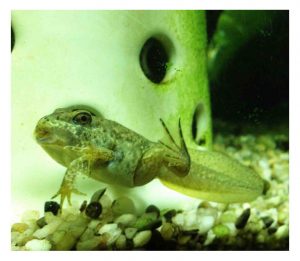by Gary Swick- 
I hear folks are anxious to get started on their yard maintenance. This is a season of increased threats to local water quality from poor yard management decisions. Many residential properties are close to a street drain that goes directly to a local stream or the Fox River without any treatment. When the fertilizer and control chemicals wash off yards into the street, they are destined to wreak havoc on aquatic ecosystems – many organisms are especially sensitive. Whenever I see someone carrying a container of Roundup, I remember seeing hundreds of dead bullfrog tadpoles, thanks to my neighbor’s desire to keep his pond’s edge free from “weeds.”
The best yard-management protection of local water quality comes from replacing turf grass with habitat, including planting native plants. By naturalizing your yard, you are:
- Providing important food for wildlife
- Assisting in pollination of plants
- Eliminating the need for fertilizer and other threatening chemicals
- Supporting beneficial species for pest control
Some turf is fine in a yard, but reducing its dominance is a great start. Reducing turf will also reduce the maintenance burden of mowing, watering, and weeding. Natives species have been working for over 10,000 years adapting to our environmental conditions. The “lawn culture” is relatively very new, but it has had devastating impacts upon native plant and animal species. The impacts on water quality are also clearly negative, as evidenced by excess algal growth and its domino effects. What is not entirely clear is the impact upon human and pet health.
Data suggests that putting highly toxic chemicals on yards does cause serious conditions in the short and long term. An added concern is that what your neighbors do with their yard management can impact your children and pets that play outside.
If you are considering using fertilizer, it would be wise to test your soil to determine if you even need it. Most soil in our watershed is already naturally high in phosphorus content. If you hire a lawn care service, request a test for phosphorus and an individualized plan based upon your yard’s requirements. After all, from what other health service do you request the care that everybody else is getting?
Your yard management decisions have water-quality implications. Please be a Friend of the Fox River.
For more information, visit: http://midwestpesticideaction.org/
